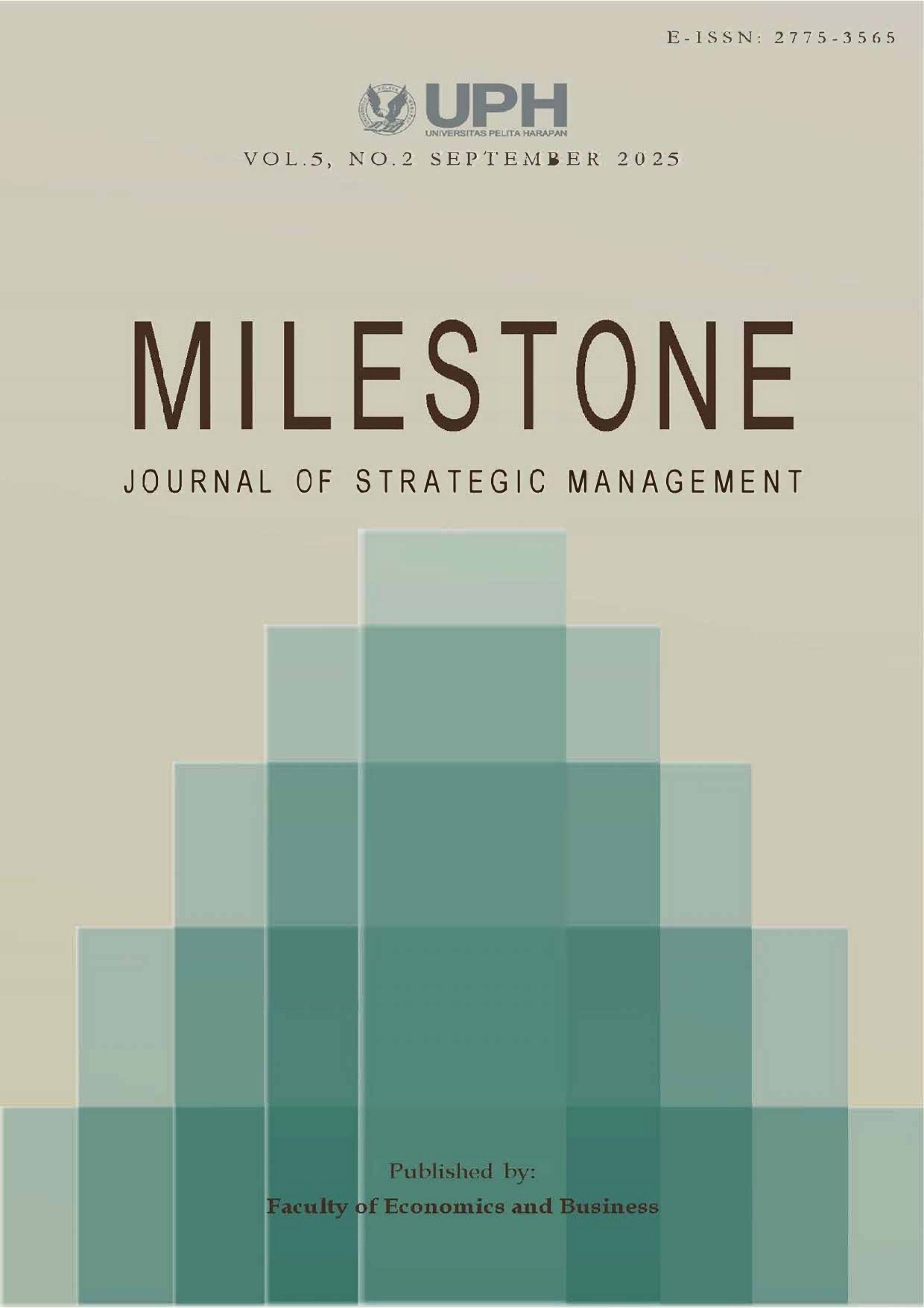The Impact of Inflation and Interest Rates on Economic Growth in Southeast Asia: A Panel Data Analysis
DOI:
https://doi.org/10.19166/ms.v5i2.9857Schlagworte:
Inflation, Interest Rate, Economic Growth, Panel Data, Southeast AsiaAbstract
Economic growth in Southeast Asia is influenced by a variety of macroeconomic variables, with inflation and interest rates being two of the most crucial. This study aims to examine the impact of inflation and interest rates on the economic growth (measured by GDP) of ten Southeast Asian countries from 2007 to 2023. Using a panel data regression approach, the analysis applies several econometric models including Pooled OLS, Fixed Effects Model, Random Effects Model, and spatial econometric models (Spatial Autoregressive Model/SAR and Spatial Error Model/SEM) to determine the most suitable model for the data. The results show that interest rates have a significant negative effect on GDP growth, suggesting that higher interest rates tend to reduce economic activity in the region. Inflation, while showing a weaker relationship, also negatively affects GDP in most models. Spatial analysis further reveals the presence of spatial dependence among Southeast Asia countries, indicating that the economic performance of one country is not isolated but affected by its neighbors. Among the models tested, the Spatial Error Model (SEM) is found to be the best fit based on statistical criteria, highlighting the importance of unobserved regional factors and spatial spillover effects. Policy implications include the need for coordinated regional monetary policies, maintaining inflation within manageable limits, and enhancing economic cooperation among Southeast Asia nations. While the R-squared values are relatively low, the statistical significance of the core variables underscores their relevance. This study contributes to the broader understanding of macroeconomic management and regional economic integration in Southeast Asia.
Literaturhinweise
Adnani, M. (2022). Recent surge in inflation and its economic outcomes [Master’s Thesis, University of Padua]. University of Padua Theses Repository. https://thesis.unipd.it/handle/20.500.12608/68242
Akalpler, E., & Duhok, D. (2018). Does monetary policy affect economic growth: Evidence from Malaysia. Journal of Economic and Administrative Sciences, 34(1), 2–20. https://doi.org/10.1108/JEAS-03-2017-0013
ASEAN Statistics. (2023, December 19). ASEAN statistical yearbook 2023. ASEAN Secretariat. https://www.aseanstats.org/wp-content/uploads/2023/12/ASYB-2023-v1.pdf
ASEAN Statistics. (2024). ASEAN statistical highlights 2024. ASEAN Data Science Explores. https://aseandse.org/asean-statistical-yearbook-2024/
Croissant, Y., & Millo, G. (2018). Panel data econometrics with R. John Wiley & Sons. https://doi.org/10.1002/9781119504641
Hansen, B. E. (2022). Econometrics. Princeton University Press.
Hussin, F., & Saidin, N. (2012). Economic growth in ASEAN-4 countries: A panel data analysis. International Journal of Economics and Finance, 4(9), 119–119. http://dx.doi.org/10.5539/ijef.v4n9p119
Jackson, E. A. (2024). Economic theory of inflation. SSRN Electronic Journal, 11, 1–7. http://dx.doi.org/10.2139/ssrn.4687082
Sari, D. M., Asngari, I., Hidayat, A., & Andaiyani, S. (2023). The effect of interest rates, exchange rates and output gap on inflation in five ASEAN countries: A panel data evidence. Journal of Applied Economic Research, 22(1), 6–29. http://dx.doi.org/10.15826/vestnik.2023.22.1.001
Sitompul, T., & Simangunsong, Y. (2019). The analysis of the impact of GDP, FDI, minimum wage on employment in Indonesia. International Journal of Management, Entrepreneurship, Social Science and Humanities, 2(2), 53–62. https://doi.org/10.31098/ijmesh.v2i2.17
Tang, C. T., Yong, H. N. A., Yap, M. T., & Chong, X. Y. (2023). Inflation, interest rate and wage trade-offs in Southeast Asia countries. Advances in Economics, Business and Management Research, 169, 203–212. https://doi.org/10.2991/978-94-6463-342-9_15
Downloads
Veröffentlicht
Ausgabe
Rubrik
Lizenz
Copyright (c) 2025 Samuel Eka Nathaniel, Bella Christine Princess Wantah, Zefanya Maureen Nathania, Michelle Angelique Nataputra, Ferry Vincenttius Ferdinand

Dieses Werk steht unter der Lizenz Creative Commons Namensnennung - Weitergabe unter gleichen Bedingungen 4.0 International.
Authors who publish with this journal agree to the following terms:
1) Authors retain copyright and grant the journal right of first publication with the work simultaneously licensed under a Creative Commons Attribution License (CC-BY-SA 4.0) that allows others to share the work with an acknowledgement of the work's authorship and initial publication in this journal.
2) Authors are able to enter into separate, additional contractual arrangements for the non-exclusive distribution of the journal's published version of the work (e.g., post it to an institutional repository or publish it in a book), with an acknowledgement of its initial publication in this journal.
3) Authors are permitted and encouraged to post their work online (e.g., in institutional repositories or on their website). The final published PDF should be used and bibliographic details that credit the publication in this journal should be included.





